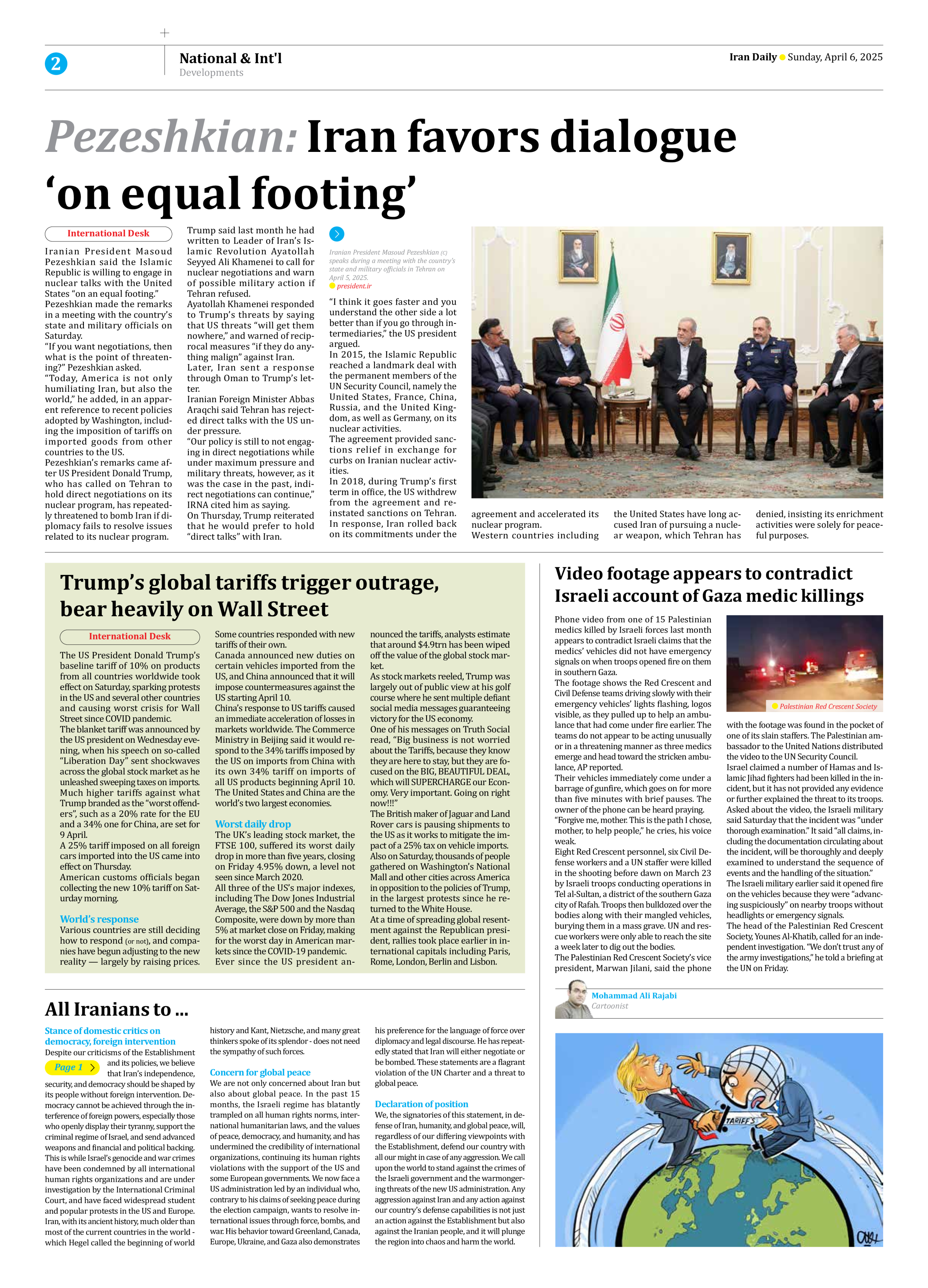
Pezeshkian: Iran favors dialogue ‘on equal footing’
Iranian President Masoud Pezeshkian said the Islamic Republic is willing to engage in nuclear talks with the United States “on an equal footing.”
Pezeshkian made the remarks in a meeting with the country’s state and military officials on Saturday.
“If you want negotiations, then what is the point of threatening?” Pezeshkian asked.
“Today, America is not only humiliating Iran, but also the world,” he added, in an apparent reference to recent policies adopted by Washington, including the imposition of tariffs on imported goods from other countries to the US.
Pezeshkian’s remarks came after US President Donald Trump, who has called on Tehran to hold direct negotiations on its nuclear program, has repeatedly threatened to bomb Iran if diplomacy fails to resolve issues related to its nuclear program.
Trump said last month he had written to Leader of Iran’s Islamic Revolution Ayatollah Seyyed Ali Khamenei to call for nuclear negotiations and warn of possible military action if Tehran refused.
Ayatollah Khamenei responded to Trump’s threats by saying that US threats “will get them nowhere,” and warned of reciprocal measures “if they do anything malign” against Iran.
Later, Iran sent a response through Oman to Trump’s letter.
Iranian Foreign Minister Abbas Araqchi said Tehran has rejected direct talks with the US under pressure.
“Our policy is still to not engaging in direct negotiations while under maximum pressure and military threats, however, as it was the case in the past, indirect negotiations can continue,” IRNA cited him as saying.
On Thursday, Trump reiterated that he would prefer to hold “direct talks” with Iran.
“I think it goes faster and you understand the other side a lot better than if you go through intermediaries,” the US president argued.
In 2015, the Islamic Republic reached a landmark deal with the permanent members of the UN Security Council, namely the United States, France, China, Russia, and the United Kingdom, as well as Germany, on its nuclear activities.
The agreement provided sanctions relief in exchange for curbs on Iranian nuclear activities.
In 2018, during Trump’s first term in office, the US withdrew from the agreement and reinstated sanctions on Tehran. In response, Iran rolled back on its commitments under the agreement and accelerated its nuclear program.
Western countries including the United States have long accused Iran of pursuing a nuclear weapon, which Tehran has denied, insisting its enrichment activities were solely for peaceful purposes.







